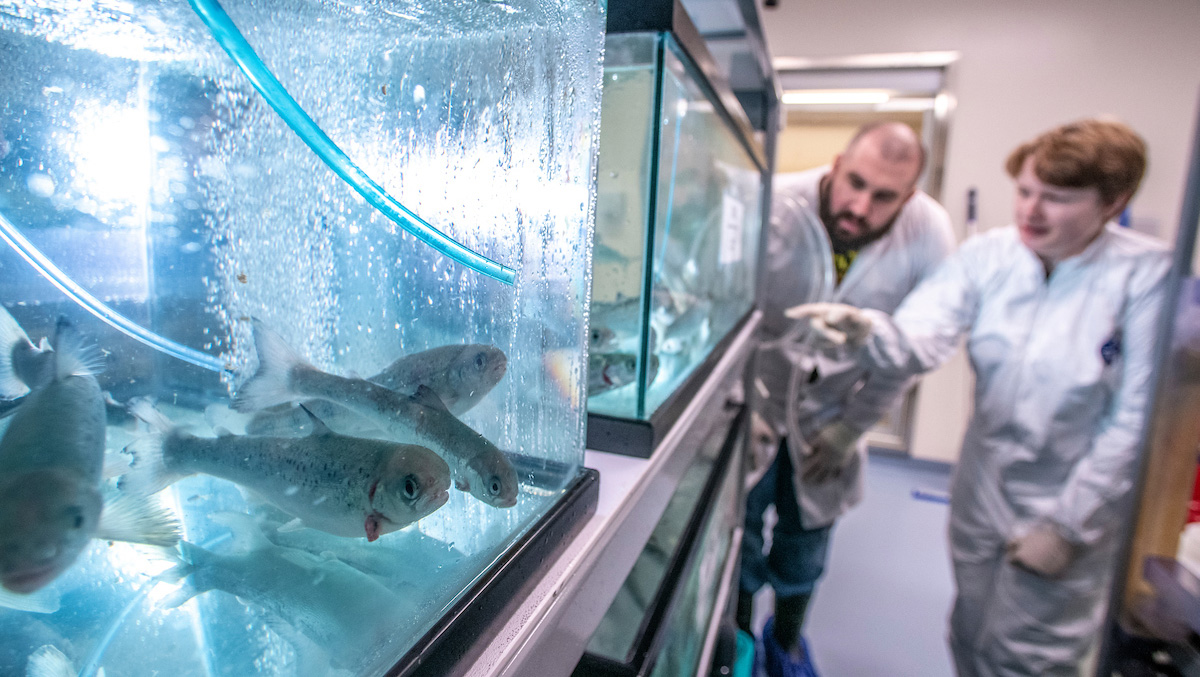
UMaine and Beyond: The UMaine MARINE Initiative
The state of Maine has 3,500 miles of beautiful coastlines and many other inland waterways. And thriving spaces for outdoor recreation and tourism. Maine’s marine environment is also home to an essential fishing and aquaculture industry.
The University of Maine MARINE initiative began as a series of small conversations and meetings between researchers across UMaine to discuss the work that was being done on marine-related issues.
After many meetings and discussions, the group sat down to put a larger plan in place. The effort received early support from the Office of the Vice President for Research and the Dean of the Graduate School.
“That’s when we asked: What more can we do together? Who else can we engage? And we started bringing in additional folks that work on marine-related issues to establish connections and strengthen activities important to Maine’s coastal communities,” said Gayle Zydlewski.
Zydlewski is the director of the Maine Sea Grant College Program and chair of the UMaine MARINE Steering Committee.
The UMaine MARINE Initiative pulls together researchers from across the UMaine system, industry, government, and community collaborators to engage in innovative and interdisciplinary research, education, and outreach related to the marine area. These efforts are designed to enhance the social, environmental, and economic well-being of the state of Maine.
The initiative was started with regular convenings of the leadership of the School of Marine Sciences, Maine Sea Grant, the Lobster Institute, Aquaculture Research Institute, Center for Cooperative Aquaculture Research, Cooperative Extension, Darling Marine Center, and UMaine Machias, among others.
These schools, centers, and institutes are working on a diverse array of marine-related topics, including lobster populations and marine ecosystem’ responses to climate change, assessments of collaborative models to enable fisheries and climate change action partnerships and the social dimensions of aquaculture.
“I look at the UMaine MARINE initiative as an opportunity to make people on campus who are doing this kind of scientific research or education in marine-related activities more available to the people of Maine,” Zydlewski said. “We have top-notch marine science undergraduate and graduate programs, and students eager to contribute to the state.”
A major goal of UMaine MARINE is to advance the coastal and marine-related needs of Maine businesses and communities. The initiative serves to host collaborative, interdisciplinary research on issues that impact the state of Maine and the people who live there.
“There are many areas where Maine people are seeking support, especially in light of our rapidly changing environment. Coastal communities are facing important decisions related to infrastructure, workforce, and working waterfronts,” Zydlewski said.
Scientists, researchers, and educators at UMaine are thinking about those issues as well.
One of the initiative’s objectives is to identify ways to exchange information between the communities and the University. It is also important to take community needs to the University to make sure that what scientists, researchers, and educators are doing is applicable to the people of the state. And it is important to ensure that the University’s network of expertise and facilities statewide reaches the communities that need it.
“Maine and the Gulf of Maine are much bigger than the University of Maine alone, and working all together across the entire state is an important place for UMaine MARINE to be heading, and to drop the “U” of UMaine MARINE and make it a Maine MARINE initiative,” Zydlewski said.
The UMaine MARINE initiative has and will continue to host events to bring together stakeholders across the state. Visit marine.umaine.edu/events for more information.
